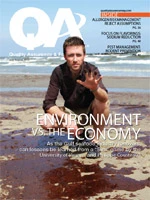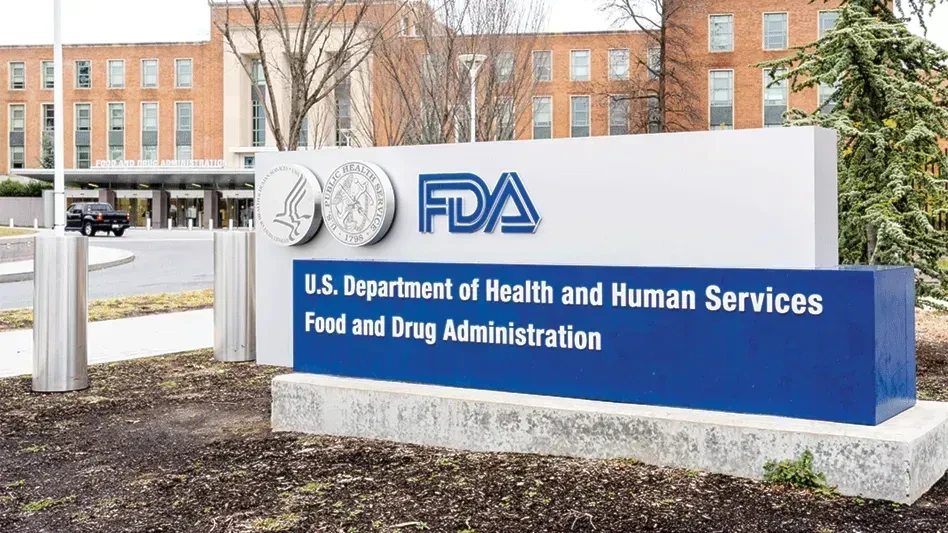QA ADVISORY BOARD Dr. David Acheson
Peter Bodnaruk Roger Brauninger Jim Campbell
Art Davis
Jeff Hayman
Thomas Johnson
Kim Kemp
Bobby Love
Shawn McBride
Deni Naumann |
The oil spill in the Gulf of Mexico is an ever-evolving situation. As of this writing, BP is finally beginning to drive the oil back into its underground reservoir, but analyses of the impact continue to vary from an Obama administration report indicating that future damage is expected to be less than initially feared, all the way to residents and watermen continuing to find beaches and sea life covered with oil and countering with evidence of the extensive damage already having taken place.
With an estimated 4.9 million barrels of oil having spilled into the Gulf since April and daily media and federal updates inundating news publications and Internet sites, the oil spill is bound to have an impact on consumer perception of the safety of foods from in and around the Gulf Coast.
As such, this issue of QA features articles focused on the connections between humans and the environment—both sudden “accidents” and ongoing practices—and their impact on the food supply chain. These articles include:
- Our cover story, “Environment vs. the Economy” (page 12), featuring Philippe Cousteau and University of Virginia (UVA) developers, which discusses simulated gaming and its capacity to foretell real-world impacts of simulated stakeholder decisions.
- A sidebar, “Can We Game the Oil Spill?”, that shows how the lessons learned from The Bay Game can be universally applied; and
- “From the Advisory Board”, where Tampa Maid Vice President of Foodservice Distribution Jeff Hayman discusses strategies to help dispel consumer fears of Gulf seafood consumption.
We can expect the story and analyses to continue to develop, with researchers coming up with results on both sides of the question. But it will most likely be years or decades before we really know the complete impact of this record-breaking accident.
Until then, we can only deal with what we do know: that the spill has had a serious impact on Gulf residents and business owners and, as Hayman cites from a factsheet of The National Fisheries Association, “Gulf fishermen have been hit hard by this and one way to help them is to buy Gulf seafood … safe to eat because officials are testing more of it than they ever have at any time.”
The author is Managing Editor of QA magazine. She can be reached at llupo@giemedia.com.

Explore the August 2010 Issue
Check out more from this issue and find your next story to read.
Latest from Quality Assurance & Food Safety
- Tecnologico de Monterrey Develops Nutraceutical Corn to Address Global Food Crisis
- Eurofins Healthcare Assurance Launches GMP Certification Program for Dietary and Food Supplements
- Calbee America Launches California R&D Innovation Center
- PepsiCo Completes Acquisition of Siete Foods
- Non-GMO Project Launches Non-Ultraprocessed Foods Verification
- FDA to Hold Webinar on Updated ‘Healthy’ Claim
- High-Tech Partnership Creates Natural Blue Color for Greener Tomorrow
- Kraft Heinz Hosts Innovation Challenge for Sustainable Packaging





